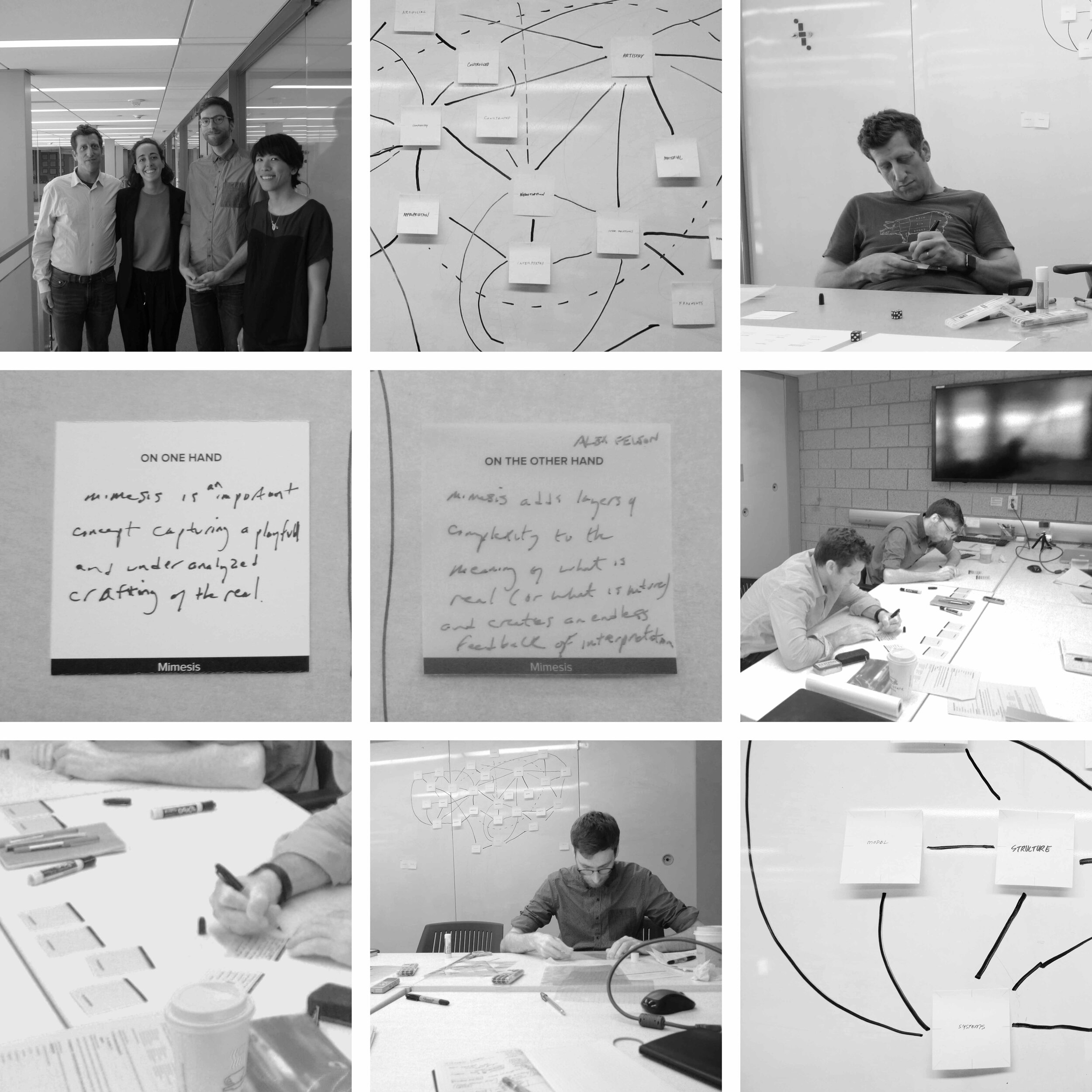OBJECTIVES
The proposed program of work aims to explore new approaches in architecture that could incorporate a greater sensitivity and mutuality to other living beings in the built environment. The aim of the research would be to further educate our practice and to bring awareness to the greater public regarding the implications of human activity on the environment, the necessity of a change in perspective in human/other species’ habitation boundaries, and the initiation of co-habitation norms that could generate a more inclusive building.
There will be two major objectives to the proposed program of work. Firstly, raising awareness of the current ecological implications associated with the domination of territory and resources by humans; the necessity to change to a more inclusive attitude towards other living beings and to make a shift in the way we build our shelters to be more respectful. The second goal would be to develop a methodology and conceive of adaptable tools/approaches that would allow for accommodative designs to be integrated in present architectural practice.
The plan is to engage in different workshops to discuss relevant work/thoughts with the goal of generating possible solutions/exploratory ideas concerning the two objectives. The information gathered from all the workshops would lead to developing a ‘toolset’ that explores the notion of inter-species cohabitation. All the knowledge gathered from the research will be synthesized into a diffusion medium that will reach out to universities, authorities having jurisdiction, clients, the construction industry, and the public at large.
FRAMEWORK
The framework for the research is a design ‘toolset’ that aims to reveal the intricacy of biocentric architecture, to make visible the links between seemingly disparate notions and to formulate new inclusive design possibilities. This will be the primary focus of the collaborative workshops.
The main aim of the ‘toolset’ is to bring an awareness to the new generation of designers in hopes of changing the normative architectural approach. The compiled information from the research will focus on the numerous issues involved in rendering the boundaries between all living beings more fluid. The participants will collaborate in a design project by exploring existing/new notions and their consequences. The actions required to use the ‘toolset’ will help further the discussion regarding an architecture that responds constructively to other living beings.
OBJECTIFS
Le programme de recherche lauréat du Prix de Rome 2017, «Adaptive Boundaries» vise à explorer de nouvelles approches architecturales intégrant une vision plus sensible, ainsi qu’une mutualité aux êtres vivants partageant l'environnement bâti.
L'objectif de cette recherche consiste à approfondir notre pratique et à sensibiliser le public aux implications de l'activité humaine sur l'environnement. Affirmant la nécessité d'un changement de perspective entre les limites des habitations humaines et les habitats naturels, nous cherchons à initier une réflexion face aux différentes normes de cohabitation tout en favorisant un bâti plus inclusif. Nous aimerions prendre part au positionnement d'une architecture adaptative, où la façon dont nous construisons est repensée afin de prioriser une approche moins intrusive et synonyme d'une compréhension globale.
La pertinence de cette recherche s’inscrit dans une progression intégrale de la pratique; en s'engageant dans ce programme d'étude, il s’agit de créer des liens avec différents spécialistes du domaine qui participerons à trouver des solutions créatives dans une perspective biocentrique. KANVA croit qu'il incombe à l'architecte de créer des habitats alternatifs, dans le but de bonifier l'environnement dans une réflexion pluridisciplinaire sur les impacts et bénéfices potentiels de notre pratique au sein de la biodiversité.
CADRE DE LA RECHERCHE
Le cadre de la recherche vise la création d'un outil de conception visant à révéler la complexité de l'architecture biocentrique, à rendre visibles les liens entre des notions apparemment disparates et à formuler de nouvelles possibilités de conception inclusive. La compilation d'informations et de notions ainsi que le tissage de lien entre les différents champs de pratique seront les objectifs principaux des ateliers.
L'objectif principal de cet outil est de sensibiliser la nouvelle génération de designers dans l'espoir de changer l'approche architecturale normative. Les informations compilées à partir de la recherche se concentreront sur les nombreuses questions qu’impliquent le fait de rendre les frontières entre tous les êtres vivants plus fluides et perméables. Les utilisateurs de l'outil seront invités à collaborer dans le cadre de la conception d'un projet prédéterminé en explorant les notions existantes / exploratoires et leurs conséquences en termes d'architecture biocentrique. Les actions requises pour utiliser cet outil aideront à approfondir la discussion et permettre une réflexion sur une architecture en dialogue avec les écosystèmes.
WORKSHOPS | ATELIERS
HOUSTON, TX
2018.04.24
Collaborator | Collaborareur: Cary Wolfe
Guest | Invité: Carlos Jiménez
KANVA: Laurence Boutin-Laperrière, Joyce Yam & Rami Bebawi
BUFFALO, NY
2018.05.22
Collaborator | Collaborareur: Joyce Hwang
Guests | Invités: Sarah Gunawan, Sara Hayashi, Julia Jamrozik, Martha Bohm, Chris Romano & Nicholas Rajkovich
KANVA: Minh-Giao Truong, Olga Karpova, Dale Byrns, Laurianne Brodeur, Katrine Rivard, Laurence Boutin-Laperrière, Joyce Yam, Tudor Radulescu & Rami Bebawi
NEW HAVEN, CT
2018.05.25
Collaborator | Collaborareur: Alexander Felson
Guest | Invité: Vittorio Lovato
KANVA: Laurence Boutin-Laperrière & Joyce Yam
OSLO, NO
2018.07.18
Collaborator | Collaborareur: Jorgen Johan Tandberg
Guests | Invités: Alvar Aronija, Julie Krogstad, Jeannette Hoff & Louis Gervais
KANVA: Laurence Boutin-Laperrière & Joyce Yam
VANCOUVER, BC
2018.09.14
Collaborator | Collaborareur: James Bernard Mackinnon
Guests | Invités: Nick Page, Latoyia Gooder & Kelty Miyoshi McKinnon
KANVA: Olga Karpova & Rami Bebawi
PORTLAND, OR
2018.09.17
Collaborator | Collaborareur: Adam Kuby
Guests | Invités: Dawn Uchiyama, Toby Query, Randy Gragg, Fernanda D’Agostino, Peg Butler & Linda Wysong
KANVA: Olga Karpova & Rami Bebawi





